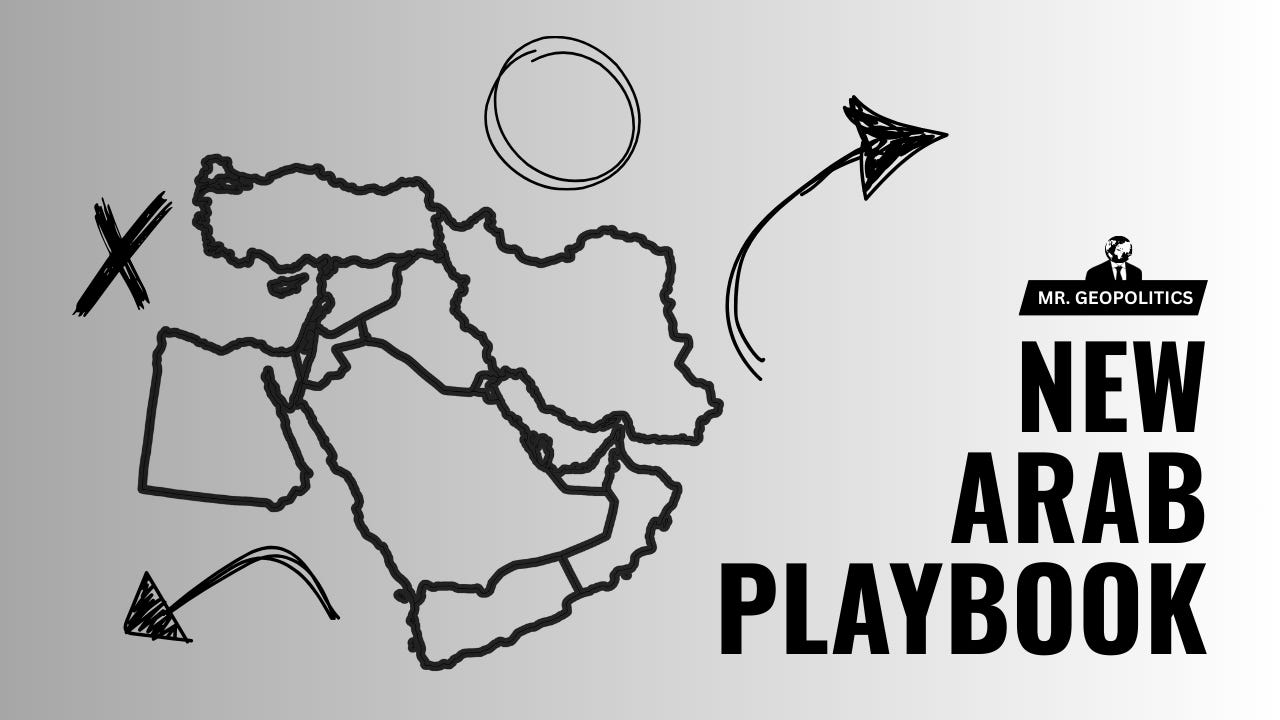The Arab World's New Playbook for Israel
Tomorrow's Middle East is emerging in real-time
After Israel’s surprise strike on Hamas in Doha, Qatar, the Middle East is in a state of flux. The Arab world, already angry at what is occurring in Gaza, has shifted gears. A new playbook for Israel is being drawn up.
The events of the past several days signal that this new playbook is being created:
The Qatari prime minister, Mohammed bin Abdulrahman bin Jassim Al-Thani, called the strike on Doha “state terrorism.”
Arab states held an emergency summit to discuss the relationship with Israel, and “review” their existing ties.
The Israeli government has left the door open to further strikes on Hamas beyond Gaza, saying it will strike them “wherever they are.”
After already linking the normalization of ties with the cessation of war in Gaza, Saudi Arabia referred to the strike in Doha as a “violation of the sovereignty” of its sister state (Qatar).
On the surface, none of this might seem significant, perhaps even the expected remarks from governments in a heightened emotional state. However, weave together other events and take into account the new reality of the world (the Middle East is no longer “rising” as it was in the 70s and 80s, it has risen), and it is clear what is on the horizon.
The Arab world is on the precipice of creating a new doctrine for Israel, one that will change the geopolitics of the region and once again bring rivalries into the center of the global economy. Anybody thinking about the future of Eurasia, or what’s next in the Middle East, must understand this new playbook intimately.
👁 GEOPOLITICAL FORESIGHT ON THE MIDDLE EAST
Keep reading with a 7-day free trial
Subscribe to Mr. Geopolitics to keep reading this post and get 7 days of free access to the full post archives.







